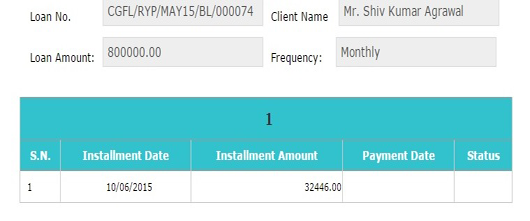Banking Sector Software Service in Thiruvananthapuram
Welcome to Websoftex Banking Sector software Service.
We at Websoftex Software Solutions Pvt. Ltd. claim an expertise in Banking Sector, we develop software for Co-operative Banks, Microfinance Institutions, Nidhi Companies, NBFCs, Chit Funds and other types of finance companies. These software are outcome of extensive R & D in the field of Banking for over 5 years of duration under the experienced guidance of senior employees of Banks. Our Banking software are easy to operate after a little training. It has been our persisting effort to make our software accurate and errorless. With the help of our sincere clients we have been successful to achieve this aim till now.
Following are the types of banking in which we provide software:
Co-operative Banks
A cooperative (also known as co-operative, co-op, or coop) is "an autonomous association of persons united voluntarily to meet their common economic, social, and cultural needs and aspirations through a jointly-owned and democratically-controlled enterprise".[1] Cooperatives may include:
- non-profitcommunity organizations.
- businesses owned and managed by the people who use their services (a consumer cooperative).
- organizations managed by the people who work there (worker cooperatives).
- organizations managed by the people to whom they provide accommodation (housing cooperatives).
- hybrids such as worker cooperatives that are also consumer cooperatives or credit unions.
- multi-stakeholder cooperatives such as those that bring together civil society and local actors to deliver community needs.
- second- and third-tier cooperatives whose members are other cooperatives.
Chit Fund
Chit fund is a type of savings scheme practiced in India. According to Section 2(b) of the Chit Funds Act, 1982. Chit means a transaction whether called chit, chit fund, chitty, kuree or by any other name by or under which a person enters into an agreement with a specified number of persons that every one of them shall subscribe a certain sum of money (or a certain quantity of grain instead) by way of periodical installments over a definite period and that each such subscriber shall, in his turn, as determined by lot or by auction or by tender or in such other manner as may be specified in the chit agreement, be entitled to the prize amount. Such chit fund schemes may be conducted by organized financial institutions, or may be unorganized schemes conducted between friends or relatives. In some variations of chit funds, the savings are for a specific purpose.
Microfinance Institutions
Microfinance is the provision of microloans to poor entrepreneurs and small businesses lacking access to banking and related services. The two main mechanisms for the delivery of financial services to such clients were:
(1) relationship-based banking for individual entrepreneurs and small businesses; and
(2) group-based models, where several entrepreneurs come together to apply for loans and other services as a group.
For many, microfinance is a way to promote economic development, employment and growth through the support of micro-entrepreneurs and small businesses; for others it is a way for poor to manage their finances more effectively and take advantage of economic opportunities while managing the risks. The terms have evolved - from micro-credit to micro-finance, and now 'financial inclusion'.
Nidhi Companies (Mutual Benefit Society)
A nidhi company or Mutual Benefit Society, is one that belongs to the non-banking Indian finance sector and is recognized under section 406 of the Companies Act, 2013. Their core business is borrowing and lending money between their members. They are also known as Permanent Fund, Benefit Funds, Mutual Benefit Funds and Mutual Benefit Company. They are regulated by Ministry of Corporate Affairs. Reserve Bank of India is empowered to issue directions to them in matters relating to their deposit acceptance activities.
NBFC
A Non Banking Financial Company (NBFC) is a company registered under the Companies Act, 1956 of India, engaged in the business of loans and advances, acquisition of shares, stock, bonds hire-purchase insurance business or chit business but does not include any institution whose principal business includes agriculture, industrial activity or the sale, purchase or construction of immovable property. The working and operations of NBFCs are regulated by the Reserve Bank of India (RBI) within the framework of the [[Reserve Bank of India Act, 1934]] (Chapter III-B) and the directions issued by it.
